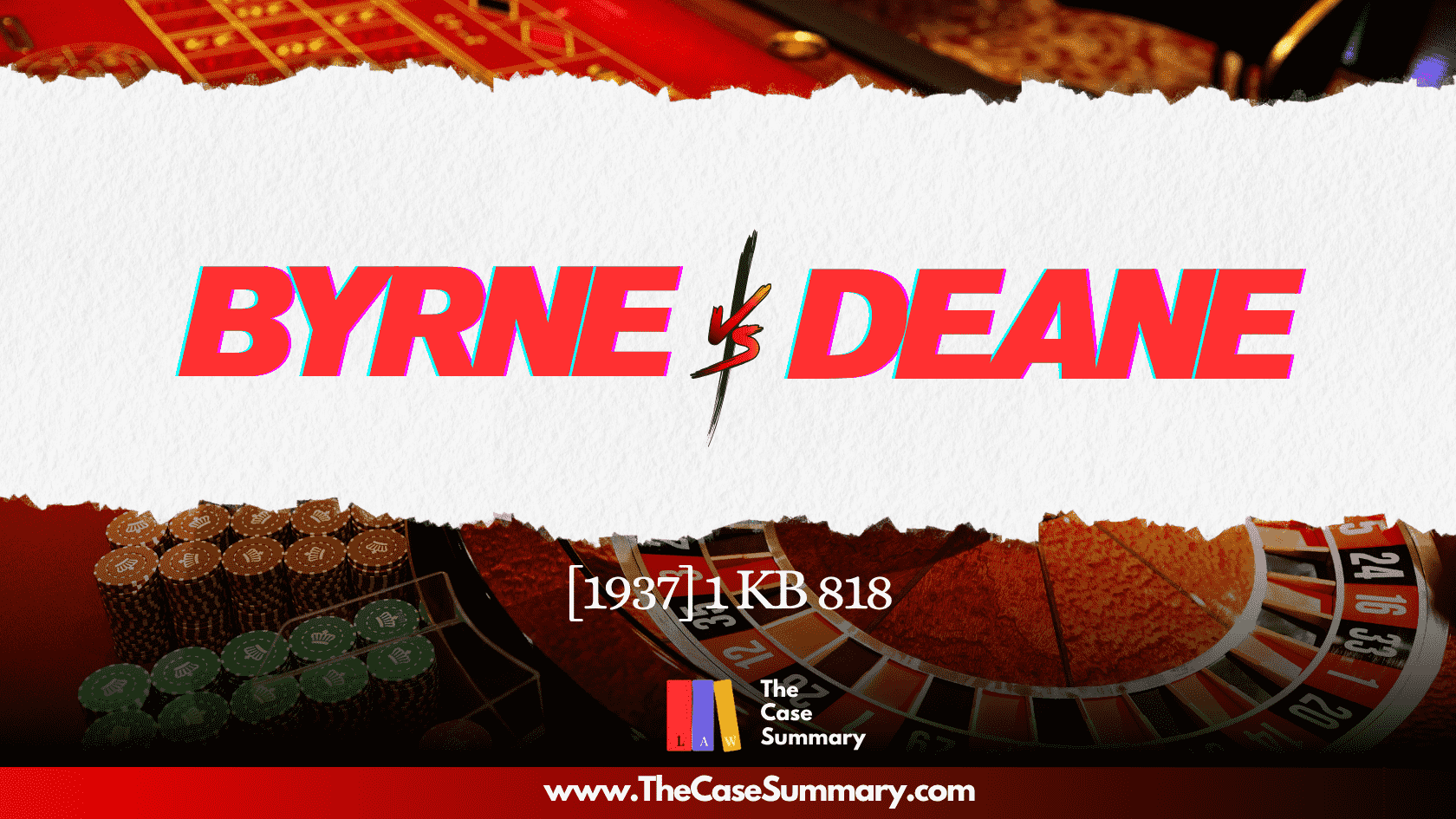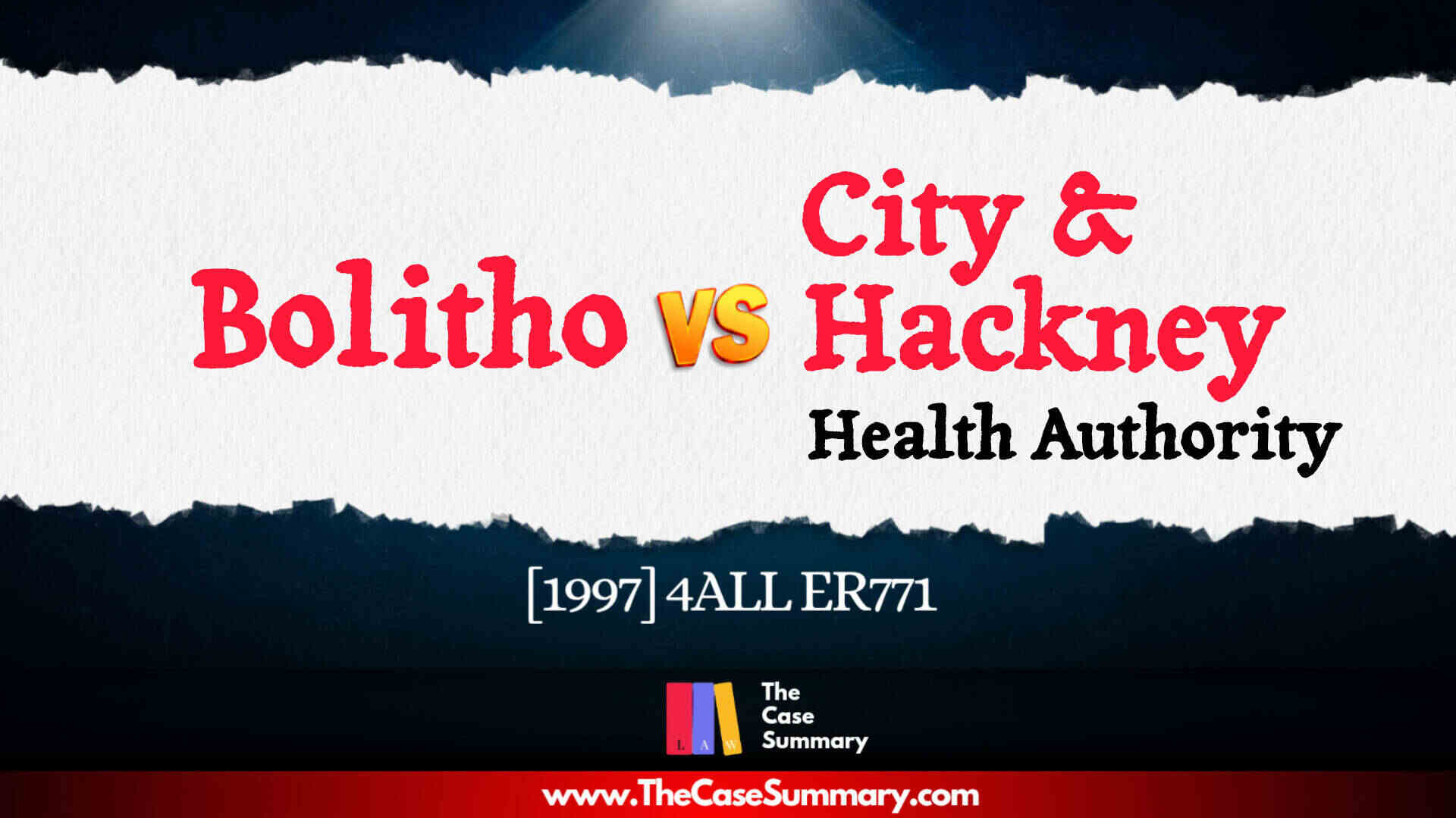Edmund Joseph Byrne vs Robert Heward Deane and Aletta Felicia Deane
Citation: [1937] 1 KB 818
Jurisdiction : England and Wales
Plaintiff : Edmund Joseph Byrne
Defendant : Robert Heward Deane and Aletta Felicia Deane
Facts :
Edmund Joseph Byrne, the plaintiff, was a member of the Seaford Head Golf Club. The defendants, Robert Heward Deane and Aletta Felicia Deane, were the owners and directors of the club, with Mrs. Deane also serving as secretary.
The club had gambling machines known as “diddlers,” which were used by members and generated profits shared with the defendants. After the police were informed, the machines were removed on police instruction. The next day, an anonymous typewritten verse appeared on a club wall, which included, “But he who gave the game away, may he burn in hell and rue the day,” suggesting that someone had reported the machines and betrayed the club. The plaintiff alleged that the verse referred to him and was defamatory. Although the defendants had not authored the verse, the plaintiff argued they were liable for allowing it to remain on display.
Issues :
1. Whether the notice on the club wall was capable of bearing a defamatory meaning.
2. Whether allowing the notice to remain had constituted “publication” of defamatory material.
3. Whether both or either of the defendants could be held liable for the publication, given their roles and authority in the club.
Arguments :
Plaintiff’s Argument:
The plaintiff argued that the verse implied he had reported the gambling machines to the police and acted with disloyalty, thereby harming his reputation among fellow club members. Although the defendants did not create or post the notice, they had control over the premises. The female defendant, in particular, had authority under club rules to remove unauthorized materials and admitted to seeing the notice. By allowing the defamatory notice to remain, the defendants were said to have permitted its continued publication. The plaintiff relied on legal authorities such as Hird v. Wood (1894) [38 SJ 234] and De Libellis Famosis to assert that inaction, despite having knowledge, when coupled with control, may amount to publication.
Defendant’s Argument:
The defendants denied responsibility for the authorship or placement of the notice and contended that mere failure to remove it did not amount to publication. They cited Pullman v. Hill & Co. (1891) [1 QB 524] to argue that publication requires intentional communication to a third party, which was absent in this case. They maintained that reporting an unlawful activity is a civic duty and cannot be considered defamatory. Additionally, the male defendant asserted he had no direct authority over wall postings, as management responsibilities were vested in the club committee.
Decisions :
Trial Court:
The Trial Court found that the words contained in the notice were defamatory. He held that the defendants, by virtue of their control over the club premises and their failure to remove the notice, had effectively published the defamatory content. Consequently, the court awarded the plaintiff nominal damages amounting to forty shillings, along with the costs of the proceedings.
Court of Appeal:
The majority decision of the Court of Appeal disagreed with the view of the trial Judge. The words were not found to be defamatory, as stating that someone had informed the authority about an illegal activity does not degrade the person’s reputation in the eyes of the “right-thinking members of society.” Although failure to remove the notice could constitute publication, no publication was made by the male defendant, and only limited evidence was found against the female defendant. Greer L.J. dissented with the majority. In his view, the words were defamatory, implying betrayal, and leaving the notice up amounted to publication.
Appeal was allowed by the majority, and the trial judgment was overturned.
Author :
1. Fuad Hasan
Note : The Case Summary is a platform by the law students, for the law students. We aim to summarize the facts and decisions of various important cases in both Bangla and English with utmost caution. However, this platform is in no way a replacement for going through the complete judgements by the law students and we discourage any learner from relying on case summaries alone. Thank you



